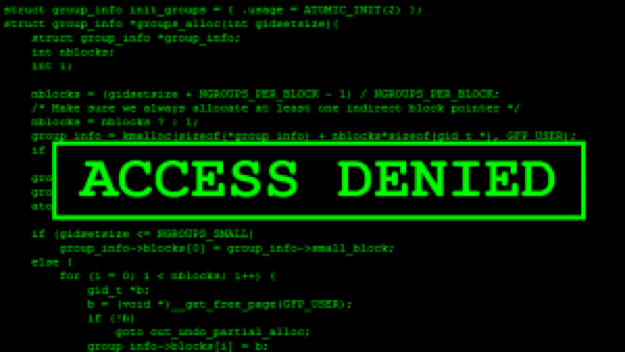Samarth Agarwal, Year 11
DRM is the dirty word that media executives don’t want you to know about. DRM stands for, according to Hollywood, Digital Rights Management, although, based on what it really does, Digital Restrictions Management would be a more appropriate term. DRM in a nutshell can be described by these situations:
- Bought an ebook from Amazon but can’t read it on your ebook reader of choice? That’s DRM.
- Bought a video game but can’t play it today because the manufacturer’s “authentication servers” are offline? That’s DRM.
- Bought a smartphone but can’t use the applications or the service provider you want on it? That’s DRM.
- Bought a DVD or Blu-Ray but can’t copy the video onto your portable media player? That’s DRM.
Media executives really don’t want you to know about it:
“If consumers even know there’s a DRM, what it is, and how it works, we’ve already failed.” Peter Lee, Disney Executive
They claim that it’ll prevent copyright infringement, help the media make more money, “It’s better for the economy!” they say. DRM isn’t effective at helping the industry make more money (not including money gained from lawsuits) nor is helpful at preventing copyright infringement (It’s true purpose).
The illegality in DMRs
According to the Swiss Federal Department of Justice and Police (FDJP)’s study on the effects of “piracy”, it found that the savings customers made when “pirating” content are generally spent for superficial materials, like buying the latest iPhone etc… That’s the reason that copyright infringement through the internet in Switzerland for personal use only will remain legal. Although if you’ve signed a contract with Amazon not to infringe their content and you do, that’s still illegal. In addition, DRM is highly ineffective; most DRM is cracked within days of being released, if not hours (Ubisoft, Amazon, Apple) and is only minor detour those who are technologically advanced and a roadblock for most common users. Let’s say you bought a book on your Kindle, but then you immediately dropped it on the floor smashing the screen in excitement. Your parents wouldn’t buy you a new one, but they got you a cheap e-reader from Sony. In an ideal world, you would just go to amazon.comand download a new copy of the book. Unfortunately this isn’t an ideal world, you wouldn’t be able to do that. Amazon doesn’t simply let you download ebook files off their website, it’s a multi-step procedure.
DRM-like software and shenanigans
Nowadays, we’re seeing something with similar effects to DRM, but for different reasons. Apps and operating systems designed so that they’re inoperable with an other app, effectively restricting you to that app’s system. An example is Apple Music and its competitor Spotify. Apple Music makes it impossible for you to get Siri to use Spotify to play music, but you can ask Siri to use Apple Music. This effectively gives Apple Music an advantage and locks you in further in the Apple “Ecosystem”. Keurig (A coffee-machine maker) and HP have done something very similar, they’ve attempted to make it impossible for you to insert a third-party cartridge into they’re machines, forcing you to buy official cartridges. Hackers easily circumvented this by using scotch tape making Keurig’s sales by 23%.
What you can do
- Show your support at http://defectiveByDesign.org
- Try to buy from retailers that don’t support DRM (like Tor Books), use this guide if you get stuck: http://www.defectivebydesign.org/guide.
- If you can’t find something you’re looking for without DRM, just copy it without authorization (as long as your in Switzerland, it’s very illegal in France).
For further reading:
Swiss Federal Law Case Studies:
http://www.ejpd.admin.ch/ejpd/fr/home/aktuell/news/2011/2011-11-30.html
Original Definitions of Hackers



